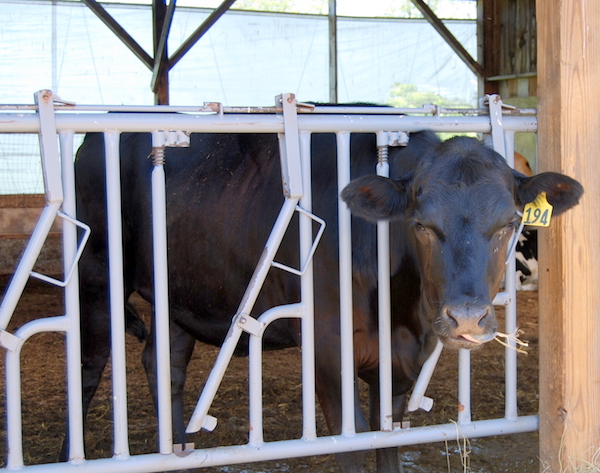
Today, U.S. Representatives Chellie Pingree (D-ME) and Thomas Massie (KY-04) and Senators Angus King (I-ME) and Rand Paul (R-KY) re-introduced legislation to make it easier for small farms and ranches to serve consumers. The PRIME (Processing Revival and Intrastate Meat Exemption) Act (H.R. 2657/S. 1232) would give individual states freedom to permit intrastate distribution of custom-slaughtered meat such as beef, pork, or lamb, to consumers, restaurants, hotels, boarding houses, and grocery stores.
"A lack of available processors is something I hear about from farmers in my District constantly. The meat they raise is in high demand by local customers who are willing to pay a premium for it, but the nearest state- or USDA-inspected processing facility could be hours away and the wait list could be months along.” said Congresswoman Chellie Pingree who raises grass-fed beef at her island farm in Maine and is the lead Democratic sponsor for the legislation. "That is just crazy and defeats the whole point of locally produced food. If we can change the federal regulations a little to make it easier to process meat locally, it's going to help farmers scale up and give local consumers what they want.”
“As a producer of grass-fed beef, I am familiar with the difficulties small producers face when marketing directly to consumers,” said Congressman Massie, who owns 50 head of cattle. “Despite consumers’ desire to know where their food comes from, federal inspection requirements make it difficult for them to purchase food from local farmers they know and trust. These onerous federal rules also make it more difficult for small farms and ranches to succeed financially. It is time to open our markets to small farms and producers and give consumers the freedom to choose.”
"The PRIME Act will help to alleviate the burden imposed on small farmers who currently don't have access to USDA-inspected meat processors,” stated Elizabeth Rich, president of the Farm-to-Consumer Legal Defense Fund. “It's a good step toward support for local, sustainable food production."
Current law exempts custom slaughter of animals from federal inspection regulations, but only if the meat is slaughtered for personal, household, guest, and employee use (21 U.S.C. § 623(a)). This means that in order to sell individual cuts of locally-raised meats to consumers, farmers and ranchers must first send their animals to one of a limited number of USDA-inspected slaughterhouses. These slaughterhouses are sometimes hundreds of miles away, which adds substantial transportation cost, and also increases the chance that meat raised locally will be co-mingled with industrially-produced meat. The PRIME Act would expand the current custom exemption and allow small farms, ranches, and slaughterhouses to thrive.
Original co-sponsors of the PRIME Act include Reps Walter Jones (R-NC), Mark Meadows (NC-11), Dana Rohrabacher (R-CA), Glenn Grothman (R-WI), Jared Huffman (D-CA), Raul Labrador (R-ID), Tom McClintock (R-CA), Zoe Lofgren (D-CA), Mark Sanford (R-SC), Rob Wittman (R-VA), Jared Polis (D-CO), Kevin Cramer (R-ND), Justin Amash (R-MI), John Garamendi (D-CA) and Dave Brat (R-VA).

